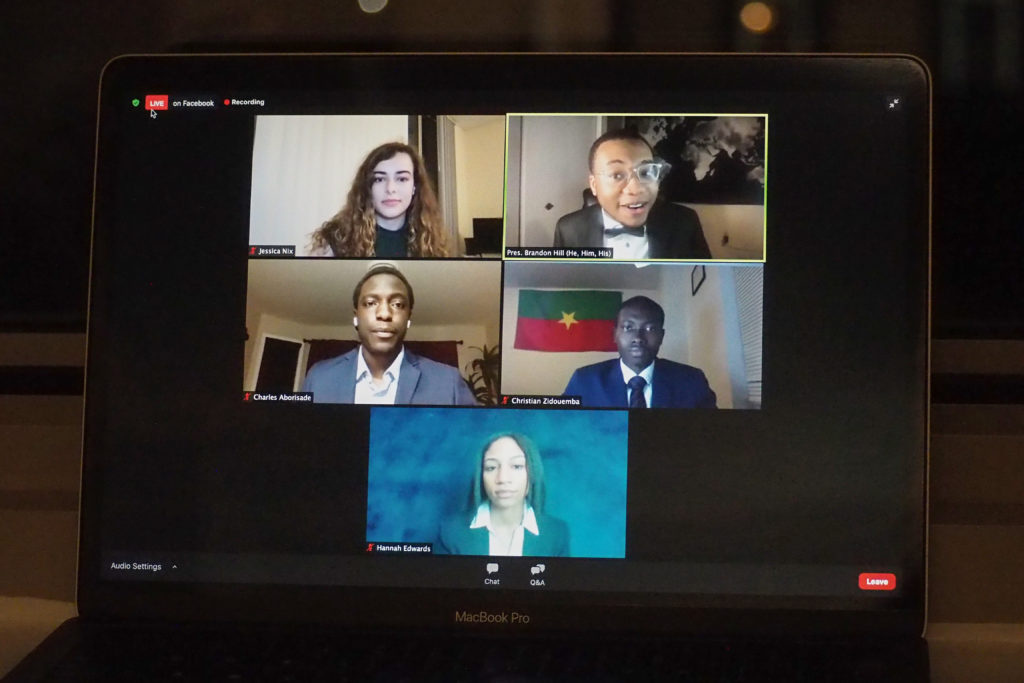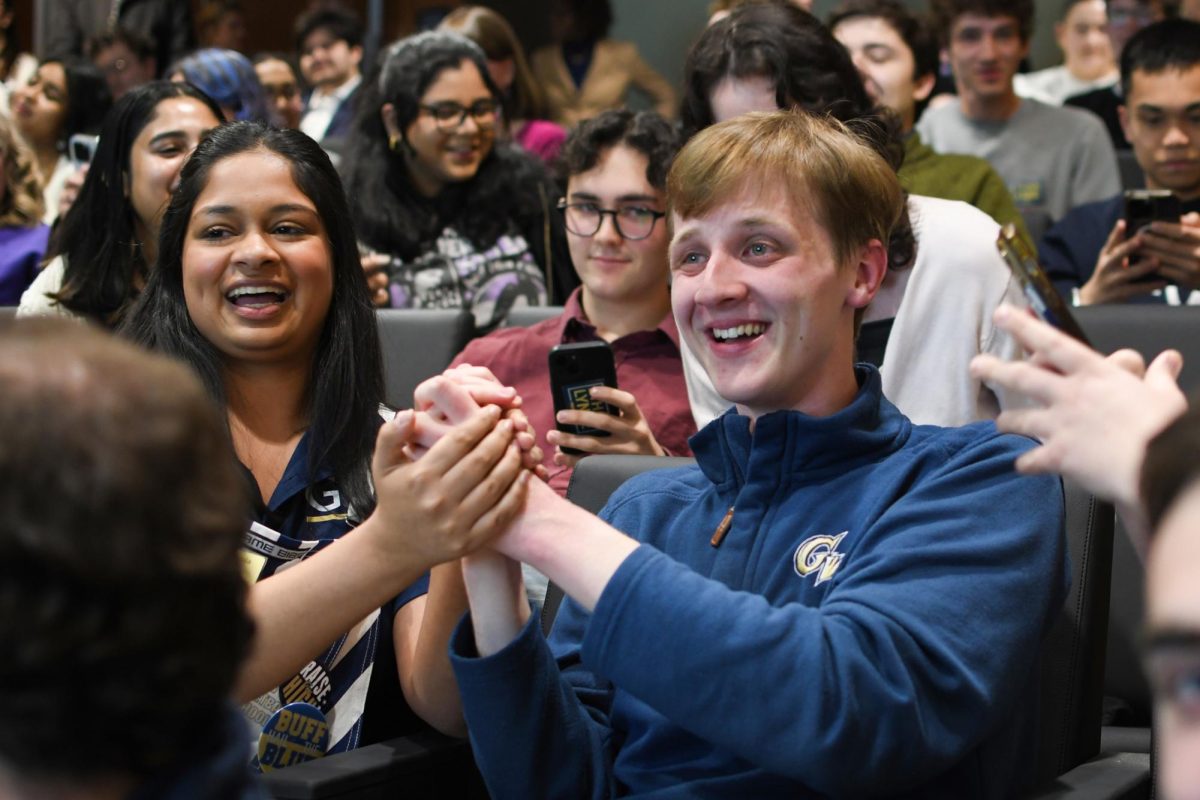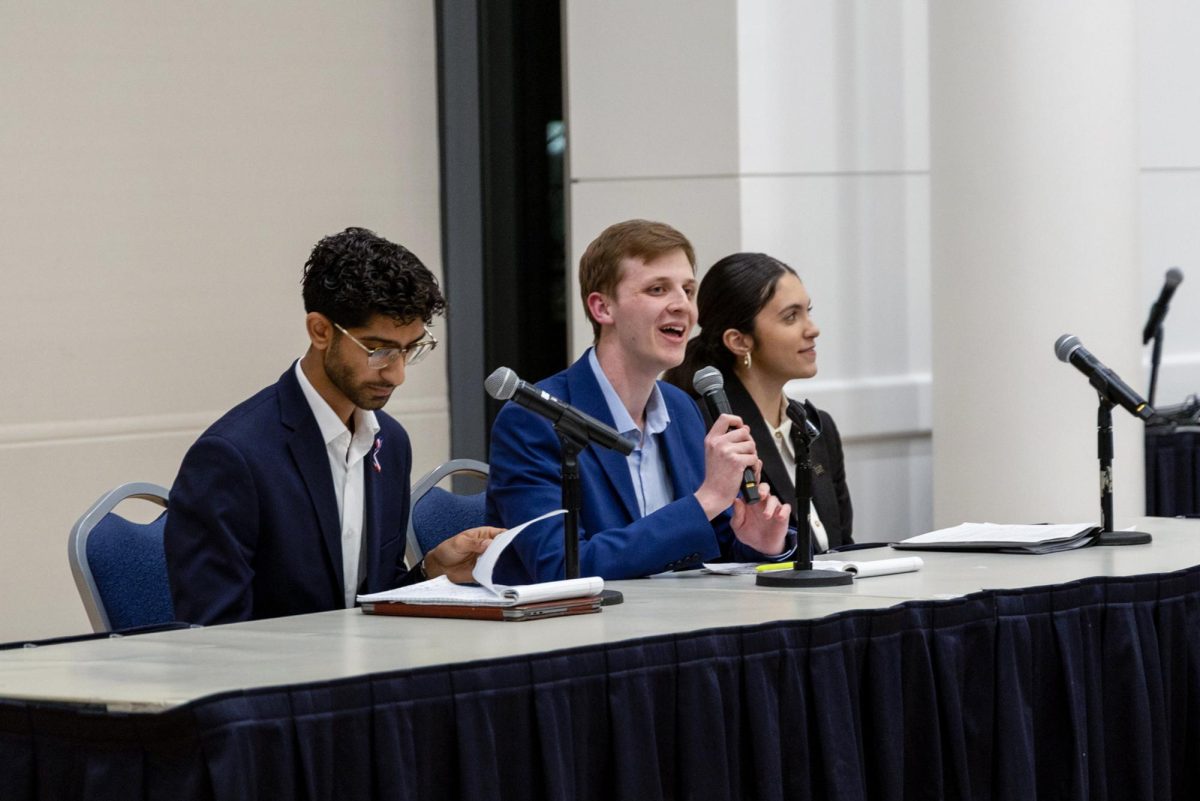Candidates vying for Student Association president and vice president fielded questions about GW’s back-to-campus plan and building trust in the body during a virtual debate Thursday evening.
More than 400 people tuned in via Zoom and Facebook Live to listen to six candidates – two vice presidential and four presidential hopefuls – discuss issues like rebuilding trust between the SA and the GW community, facilitating a safe post-pandemic return to campus this fall and increasing diversity initiatives at GW.
Jared Gans, The Hatchet’s senior news editor, and Jessica Nix, an anchor for GW-TV, moderated the vice presidential and presidential debates, respectively. The SA elections will take place via Engage on Wednesday and Thursday.
Building trust
SA Sen. Kate Carpenter, U-at-Large, and a candidate for vice president, said if elected, she will create an “accountability mechanism” through GroupMe for students, SA members and faculty to discuss issues facing the SA and the GW community. She said using GroupMe will enable community member to “directly” hold the SA accountable if they feel SA senators are not representing the community.
“There is a lack of trust between the SA and the student body, and it is really time to bridge that gap and we do that through communication,” Carpenter said. “It doesn’t need to be through ‘Overheard at GW’ anymore. There needs to be direct communication between the SA and the student body.”
SA Sen. Sofia Packer, CCAS-U, and a candidate for vice president, said she will continue working to pass an ethics amendment – which would outline behaviors prohibited by SA senators, like using an SA position for “personal, material or financial gain” – that was struck down at a recent senate meeting, to form trust in the SA. She said she will work to implement the amendment in the coming year.
She said, if elected, she will create a caucus system that will include more students in the SA to advocate for “identity-based issues” that students may feel are underrepresented in student government.
“We need to make sure that students who feel like their voices are not being heard and feel like their identities are underrepresented are being included as much as possible, no matter whether they were elected or appointed to some position or not,” Packer said.
Returning to campus
SA Sen. Charles Aborisade, CCAS-U and a candidate for SA president, said “acclimating” the classes of 2024 and 2025, both of which have not lived on campus for in-person classes, to the D.C. community will help transition the students to campus life this fall. He said, if elected, he will share information about the D.C. area with these groups to assist them in a smooth transition to GW.
Officials are hoping to return in person this fall but have not made an official decision.
“Making sure we provide them with the most resources possible not only working with just the SA, but also with other organizations throughout campus,” Aborisade said. “Mainly to provide those resources and provide a direction to those resources is going to be important moving forward into this fall semester.”
SA President Brandon Hill, a candidate for SA president, said he is currently working with the SA Pandemic Recovery Task Force to discuss possible reopening plans and gather student input to bring to officials. He said gauging the “quality of life” for students if they return to campus is an “essential” step in deciding whether or not students should return to campus.
“Nothing’s more essential than student health and so when we think about coming back, if one student dies at the hand of a reopening, that’s one too many,” Hill said.
Addressing diversity and inclusion
Christian Zidouemba, a candidate for SA president, said, if elected, he will push to create a one-credit class about racial biases. He said the class could help address discrimination within the GW community.
“By doing so, I think we will reduce anti-Semitism and racism on our campus,” Zidouemba said. “It’s time that we will not only have this conversation in classes but also within our community by having dialogue.”
Hannah Edwards, the former SA vice president for diversity and inclusion and a candidate for SA president, said her platform is focused on accessibility and “making sure students have access to GW,” like providing financial resources for minority students. She said, if elected, she will advocate to expand financial resources for low-income and first-generation students by pushing for more need-based scholarships in addition to merit-based scholarships.
“The last thing that I have wanted to do is expand the Founding Scholars Program, and offer a first-generation scholarship for students as well,” Edwards said. “I think that that would help enhance the student experience for freshmen students on campus.”







